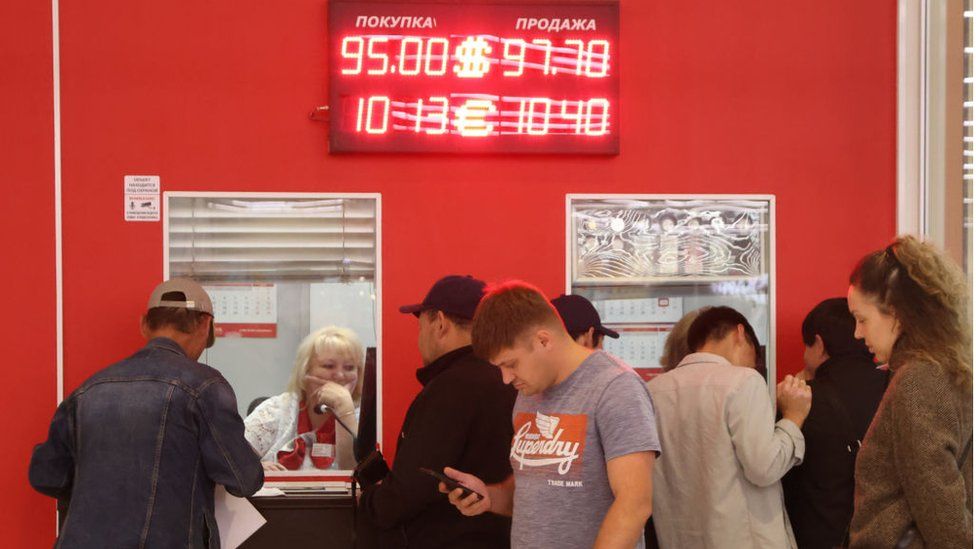-

-
-
Loading

Loading

Russia's central bank has increased its key interest rate to 15% as part of its efforts to control inflation and support the struggling rouble. This unexpected rate hike, which is the fourth consecutive increase, raises borrowing costs. Inflation in Russia reached 6% in September, partly due to the country's invasion of Ukraine. Additionally, increased government spending on military resources has contributed to inflation. The Bank of Russia has now raised rates by a total of 7.5 percentage points since July to bring inflation back down to the target of 4%. In August, there was an emergency rate hike as the rouble plummeted, and the central bank has once again called for tighter monetary policy. The bank stated that current inflationary pressures are higher than anticipated, with demand outpacing supply and lending growth being high. The disruptions in supply chains caused by the COVID-19 pandemic and Russia's invasion of Ukraine have further driven up prices worldwide, particularly in food and energy sectors. The Russian economy has been under pressure due to rising imports, slower export growth, and increased military spending for the war in Ukraine. Western sanctions imposed on Russia in response to the conflict have also impacted the economy. The rouble initially weakened significantly, but capital controls and oil and gas exports provided some support. Nevertheless, the currency has lost a considerable portion of its value against the US dollar since the conflict began. The Bank of Russia previously hiked interest rates sharply when the war started in Ukraine, but later began cutting them. However, analysts believe that rate hikes can only have limited effectiveness in stabilizing the economy, and Russia may struggle to attract investment due to Western sanctions. Economists assert that the decline in Russia's trade due to the sanctions has played a significant role in the weakening of the rouble. Many European Union countries, which relied heavily on Russian oil and gas, have pledged to reduce their imports from Russia and have found alternative suppliers. The EU has introduced a price cap plan to limit Russia's earnings from oil exports, and Russia has been excluded from Swift, an international payment system. The European Commission has expressed that the sanctions against Russia are proving effective, as coal exports have declined, and oil production has decreased by more than a quarter.